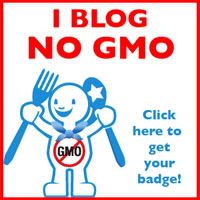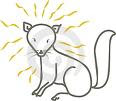Over the next few days I will give you vital information on four different types of mushrooms. I will show you what they look like and ideas on how much you should take. You can give me feedback on weather you take them or think maybe you should.
 The Reishi Mushroom also known as kisshotake or the "lucky fungus has been hailed in ancient Eastern medicine as the "mushroom of immortality" and the "medicine of kings".
The Reishi Mushroom also known as kisshotake or the "lucky fungus has been hailed in ancient Eastern medicine as the "mushroom of immortality" and the "medicine of kings".Rebecca Wood in her book "New Whole Foods Encyclopedia." She explains reishi's has a wide range of uses: "An immunostimulant, it is helpful for people with AIDS, leaky-gut syndrome, Epstein-Barr, chronic bronchitis and other infectious diseases. It can be used as an aid to sleep, as a diuretic, as a laxative and to lower cholesterol."
Reishi has been rated the top medicinal herb in Traditional Chinese Medicine (TCM) for over 2000 years and Reishi's effects on treating and preventing cancer have been so dramatic that the Japanese government officially recognizes it as a cancer treatment.
Besides treating cancer you might reap the rewards by fighting other diseases like; Heart disease and stroke, high blood pressure and high cholesterol. It can even help if you suffer from allergies.
Reishi has six (6)different types, all classified by color. Herbalists generally call red reishi the most potent and the medicinal variety. This is the most commonly used form of reishi in North America, Japan, China, Taiwan and Korea.
Now, with Reishi being 90% indigestible fiber and having a bitter taste it is not one that you might just want to add to your food. I suggest checking out you local heath food store for a high quality capsule, tablet or extract.
How much should you take?
In the "Vitamin Bible for the Twenty-first Century," vitamin expert Earl Mindell advises an average dose of 100 milligrams of reishi extract daily to boost your immune system, reduce inflammation and ease joint pain. On the other hand, Dr. Linda B. White recommends up to three 1,000-milligram tablets up to three times per day in her book "The Herbal Drugstore."
Because of this wide range of dosage suggestions and additional risks it might pose for pregnant or lactating women (even though reishi has no known toxicity) you should check with a physician, preferably a naturopath, before adding reishi to your regimen. Similarly, you should be aware that reishi does have some side effects, including abdominal upset, dizziness, nose bleeds and dry mouth and throat, according to "Natural Pharmacy" author Schuyler W. Lininger. In other words, it's up to you and your naturopath to decide which dose of reishi is right for you.
Additional information can be found at:
Natural News
Medical News Today
Antimicrobial Study






















No comments:
Post a Comment